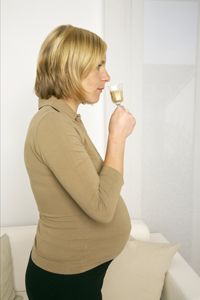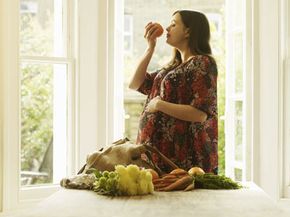When British supermarket chain Tesco asked pregnant women to come in and taste their wines in 2004, they weren't advocating fetal alcohol syndrome. Tesco's wine tasters don't drink the wines, but they swirl them in their mouths for taste and then spit them back out.
Advertisement
Why did Tesco want pregnant women, of all people, to do this? They were hoping to take advantage of pregnant women's noses and taste buds in order to procure the best wines for their customers.
Tesco's campaign was inspired by the chief wine taster at the chain, who became pregnant and reported that her experience in tasting wine became much more pronounced [source: Sample]. She's not alone in finding her senses shifted: Pregnancy books warn about the effect, and several studies in which women self-reported on their sensory perceptions found that a majority of women noticed a change.
One such study, published in 2004, asked more than 100 pregnant women to report on their senses at several points in their pregnancy, and 76 percent of respondents experienced a change in smell or taste [source: Nordin et al]. Two-thirds of the women reported increased smell sensitivity, but they also reported distortions in smells, phantom smells and abnormal tastes, including increased bitter sensitivity and decreased salt sensitivity [source: Nordin et al.]. Women experienced these effects mostly during the first trimester of pregnancy, though a smaller percentage reported changes at a later stage of pregnancy as well. After pregnancy, all changes to smell and taste perception disappeared.
Unfortunately, scientists can't necessarily back up these reports with any hard data. When Tesco announced its plans, a doctor from Britain's Royal College of Obstetrics and Gynecology said there was no evidence for enhanced taste during pregnancy and criticized it as a publicity stunt that involved drinking during pregnancy [source: BBC]. But one smell expert countered that it's just too hard to study the effect, since each pregnant woman experiences the change differently [source: Sample]. Scientists have differed bitterly on the origins of these changes.
So why do so many women report this symptom? Is there any benefit to smell sensitivity, or is it just another thing that can make the nine months of pregnancy miserable? And can anything be done besides turning pregnant women into an army of drug-sniffing crime fighters? Find out on the next page.
Advertisement


